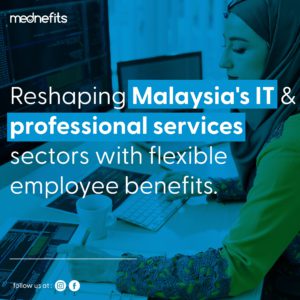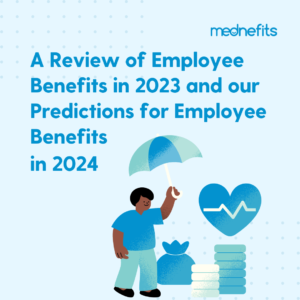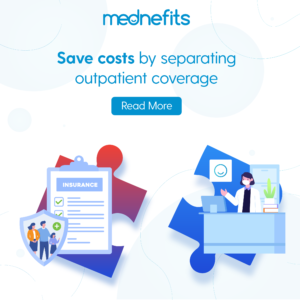
The Key Challenges SMEs Face with Traditional Healthcare Administration
September 11, 2024Careers at Mednefits | Quality Assurance Engineer
September 23, 2024Avoid the Vicious Healthcare Cycle: Flexi-Benefits, the Sustainable Solution
Employee Benefits
Avoid the Vicious Healthcare Cycle: Flexi-Benefits, the Sustainable Solution
September 18, 2024

In recent years, the employee benefits landscape in Singapore and Malaysia has undergone significant changes, primarily driven by rising healthcare costs. Employers are increasingly confronted with the challenge of managing these escalating expenses while still providing comprehensive benefits to their employees.
The traditional group insurance model often leads to a vicious cycle of increasing premiums. This is because health insurance operates on the principle of risk pooling, where the costs of healthcare are spread across a large group of policyholders. When the overall claims experience of the insured group worsens—due to higher utilisation rates and increased medical claims—insurers must adjust premiums to ensure that they can cover the anticipated costs. This leaves businesses struggling to keep up with the rising costs year on year. Employers are then left with limited options: either absorb the increased costs or pass them on to employees through higher premiums or reduced benefits. This cycle creates a financial strain on businesses, often resulting in the erosion of employee benefits and dissatisfaction among the workforce.
The Limitations of Traditional Group Insurance
While group insurance is a vital component of employee benefits, it has inherent limitations that can hinder its effectiveness. Traditional group insurance plans are typically designed to cater to the average employee, which may not address the unique needs of all employees. This one-size-fits-all approach can lead to employees feeling undervalued or employers paying for benefits employees do not utilise.
Moreover, group insurance is primarily reactive, providing coverage for medical expenses after they have been incurred. This reactive nature does not promote preventive care, which is essential for reducing long-term healthcare costs. As a result, chronic conditions may worsen, leading to higher claims and further increasing premiums.
Flexi-benefits: A Sustainable Solution
To address the challenges posed by rising healthcare costs, businesses should consider implementing flexible benefits as part of their employee benefits programme. Flexi-benefits allow employers to set a monthly spending limit for each employee, enabling them to choose from a range of benefits tailored to their individual needs. This approach not only empowers employees but also helps employers manage their healthcare costs more effectively.
One of the key advantages of flexi-benefits is the ability to promote preventive care. Employees can utilise their allocated funds for wellness activities such as mental health support and preventive health screenings. By encouraging a proactive approach to health, businesses can potentially reduce the incidence of chronic conditions, leading to lower long-term healthcare costs.
The Role of Mednefits in Transforming Employee Benefits
Mednefits provides businesses with the tools they need to implement and manage a comprehensive benefits programme that balances the need of both insurance and flexible benefits. By partnering with over 6,000 benefit providers in Singapore and Malaysia, Mednefits offers a wide range of medical and wellness services that can be customised to meet the unique needs of each organisation.
Through our user-friendly platform, Mednefits allows employees to access seven benefit categories which includes general practitioner (GP) visits, dental and optical care, traditional Chinese medicine (TCM), health screenings, specialist visits and wellness services such as physiotherap. The seamless integration of these services into a single platform streamlines and automates the claims process, eliminating the need for tedious paperwork and allowing employees to focus on their health and well-being and HR to focus on more important work.
Moreover, Mednefits empowers employers with data-driven insights into benefits usage, enabling them to make informed decisions about their benefits offerings. This transparency not only helps employers manage costs to be within their budget but also enhances employee satisfaction by ensuring that benefits align with employee preferences and needs.
The Importance of a Balanced Approach
While flexi-benefits present a sustainable solution to rising healthcare costs, it is crucial for businesses to maintain a balanced approach to employee benefits. Group insurance is also a core component of a benefits programme, as it provides essential coverage for unexpected medical emergencies and catastrophic events.
By combining group insurance with flexi-benefits, businesses can create a comprehensive employee benefits programme that addresses both immediate and long-term healthcare needs. This balanced approach not only helps control costs but also demonstrates a commitment to employee well-being and job satisfaction.




